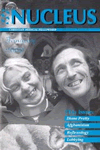Douglas Quick had lived a long life, dying at the age of 84. His was a life that was, until its final stages, blessed by good health. However, in his later years he had suffered several strokes, which had left him disabled and heavily reliant on his wife. She, due to her great love for him, had nursed him, often struggling on on her own. Caring for her husband took a great toll on Grandma, often leaving her physically and emotionally exhausted. These were anxious times for her and our family, as a whole we struggled to cope.
Despite his disabilities, amazingly Grandpa never lost the will to live. He always believed that God would heal him. Invariably however he often felt pain, knowing how his wife selflessly sacrificed her own life to care for him.
In Britain today, society is ageing rapidly. There are many in the same situation as my grandfather. Many of these feel themselves to be a burden on their families. Sadly, some of their family members feel unable to cope with the pressure being forced upon them.
It is in cases such as these that euthanasia may become an issue. In this scenario, euthanasia is often portrayed as 'mercy killing'. But a mercy to whom? To a patient ridden with guilt, who perceives themselves as a nuisance to their family? Certainly not! Despite his disabilities, my grandfather was able to enjoy life right to the end. Just a few months before his death, he was able to attend my brother's wedding. His beaming face in all the photographs shows how much he enjoyed the day!
As Christian medics our primary duty of care must be to our patients. Dying patients are especially weak and vulnerable and need to be protected so that they are not abused or taken advantage of. It is also vital, and within our role, to support the relatives of sick and terminally ill patients. This can take many forms, such as providing information, advice or even just being there to listen and comfort. However, deliberately ending the lives of our patients because of pressure on their relatives, is always wrong.
In this issue of Nucleus, Dr Nigel Sykes, one of the UK's leading experts in the palliative care of patients with motor neurone disease, covers the Diane Pretty case. As Christian medics it is also our duty to stand against unbiblical laws coming into effect in the UK. It is for this reason that we asked Laurence Crutchlow, Chairman of the CMF Students' committee and former representative to the BMA students' committee, to write on ways to lobby effectively.
































